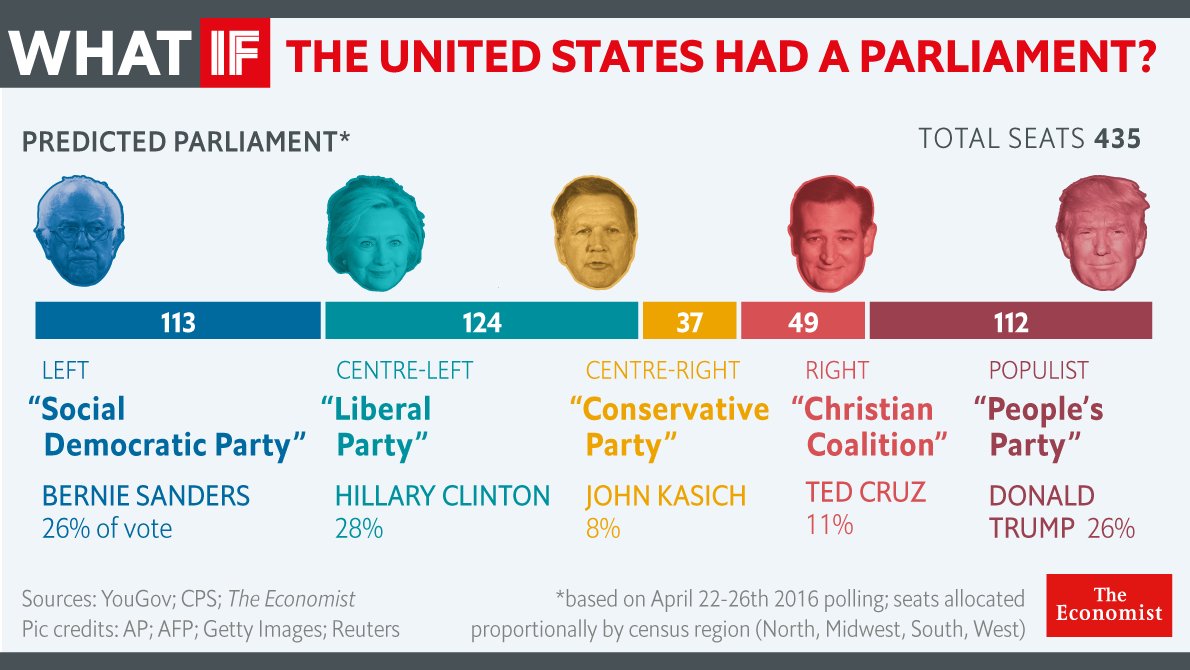
Or rather - what if we had proportional representation instead of winner take all elections?
Hot Air has great commentary:
- Click here for it.
I think they’ve got the nomenclature right for Trump’s, Clinton’s, and Sanders’s movements, but no self-respecting conservative is going to cede that label to John farking Kasich and his merry band of centrists. Call that party the Republicans (or the Tories, in honor of the squishy British version of conservatism) and let the group to their right be the Conservatives. Also, while Cruz might emerge as Conservative leader, it’s unlikely that an also-ran like Kasich would head the Republicans. Kasich made the cut here only because he refused to take a hint and drop out in April despite having no chance of winning the nomination. He’s a placeholder. But that raises the question: Who would lead the Republicans? One enjoyable dilemma created by a formal Republican/Conservative split would be watching center-right pols try to calculate which party would be better for their careers and, consequently, which of their principles they should abandon. Should Marco Rubio join the Conservative Party and battle Cruz for the leadership? Or, fearing he can’t win, should he go all-in on amnesty, social liberalism, etc, and rebrand as a center-right Republican?
If the vote turned out this way, Hillary would obviously be a strong favorite to emerge as prime minister. She and Bernie would probably form a coalition, giving her a 54 percent majority in parliament, but Sanders would have leverage. His party plus Trump’s could create a different majority coalition; he’d warn Hillary that if she doesn’t promise to do things his way on trade, for instance, he’ll bolt and he and Trump will make a deal for one of them to run the government. That’s sort of what Bernie’s doing right now in holding out on endorsing Hillary, but once she’s safely elected president she can choose to keep her promise or not and won’t have to worry about consequences until 2020. In a parliamentary system, her job would depend day-to-day on keeping that promise. No matter how you slice and dice these numbers, though, the Conservatives and the Republicans end up as nonfactors. Cruz and the Republican leader would be at the mercy of the ruling coalition. That feels like a fitting takeaway from 2016.